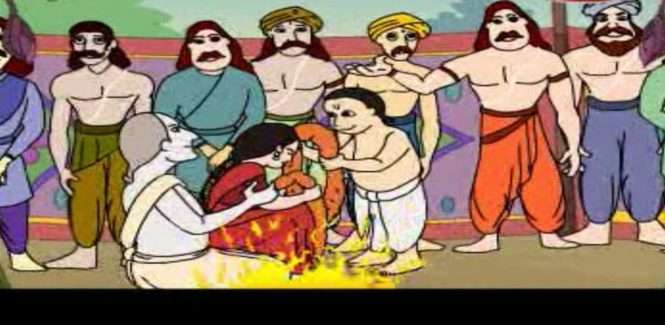
SUBRAMANIA BHARTI
Read the following passage carefully:
1 Born in 1882, Subramania Bharati’s political career began at the end of 1904. Less than four years later he would be forced into exile, an ordeal that would extend to well over a decade. The years spent in exile in the French enclave of Pondicherry, between mid-1908 and late 1918, subsume the years of the Great War, and it is not entirely coincidental that Bharati should choose to end his exile within a week of the signing of the Armistice. How did the great poet respond to the Great War?
2 Unlike World War II, this War had a little direct impact on southern India, barring the bombing by the German light cruiser Emden. But in an imperial world where India was fully integrated as Britain’s colony, the War did not leave India untouched, and the politics of the time was deeply coloured by its course and Britain’s fortunes in it.
3 The War broke out in July 1914 at a particularly inopportune moment in Bharati’s life. What Bharati called the ‘new spirit in India, the Swadeshi movement, the earliest phase of the Indian nationalist movement with mass participation, was effectively extinguished by 1908 in the wake of severe state repression. Apart from the movement’s prime leader Tilak, who was transported to Burma, many of Bharati’s own comrades — V.O. Chidambaram Pillai, Subramania Siva, Ethiraj Surendranath Arya and Krishnaswamy Sarma — were imprisoned. Fearing arrest, Bharati himself left for Pondicherry in September 1908. French India had for long been the refuge for civil debtors and other malefactors seeking to escape the clutches of the British Indian police. Bharati was the first to choose Pondicherry for political asylum — an example that would soon be followed by Aurobindo Ghosh and V.V.S. Aiyar.
4 Bharati intended to continue his political activities on French Indian soil and moved his Weekly India, and the daily Vijaya to Pondicherry to continue his nationalist propaganda. As the repression continued taking a heavy toll of the Swadeshi movement; Bharati was at his best. But, by 1910, the government had enacted new legislation such as the Indian Press Act, and the entry of Bharati’s journals into British India was throttled and Bharati’s papers folded up. To add to the misery two of his books were prescribed. Following this crackdown, Bharati had virtually no access to any avenues of expression. The volume for the years leading up to 1914 is the slimmest in the chronological edition of his collected works published by Seeni. Viswanathan and much of it is apolitical.
Read the given questions and write the answer in a sentence.
1. At what age did Subramania Bharti’s political career begin?
2. How long was he in exile?
3. Where did Bharti stay during the period of exile?
4. How much was South India affected by World War II?
5. Why did Bharti go to Pondicherry?
6. What could he do from Pondicherry that he could not do from Madras?
7. Why did Bharti stop his paper?
8. What could Bharti not do after the ban?
ANSWERS:
1. He started his political career at the age of 22.
2. He was in exile for more than a decade.
3. He stayed in Pondicherry during the period of exile.
4. Southern India was not directly affected by the war barring a bombing by a German Light
5. He went to Pondicherry because all other freedom fighters were being arrested and he wanted to escape arrest.
6. He could continue bringing out his weekly publication thereby keeping the spirit of Indians
7. A new ‘Press Act’ was brought and all publications were banned by the British.
8. Bharti’s way of expression was his writing. Now he could not do that. He had to stop writing.
Download the above Passage in PDF
More Comprehension Pasages:-
Passage -111. FISH KEEPING (350 Words Subjective Solved)
Passage -112 Rural Development (350 Words Subjective Solved)
This passage is a rural development essay pdf. Read this rural development in India essay and gain knowledge.
Passage -113 Natural way of Life (350 Words Subjective Solved)
Passage -114 Vitamin C (400 Words Subjective/Objective Solved)
This passage is all about vitamin c rich foods and vitamin c benefits. It also tells vitamin c sources and vitamin c vegetables. Read the passage to find vitamin c foods and vitamin c for the face.
Passage -115 Risks on the Road (350 Words Subjective/Objective Solved)
Passage -116 International Trade Fair (400 Words Subjective/Objective Unsolved)
Passage -117 Great Communicators (350 Words Subjective/Objective Unsolved)
Passage -118 Green Building (350 Words Subjective/Objective Solved)
This green building essay gives a fine green building introduction. Go through this green building history and make a fine green building definition.
Passage -119 New Safety Rules for e-Rickshaws (400 Words Subjective Solved)
Passage -120 Roadmap (400 Words Subjective Unsolved)